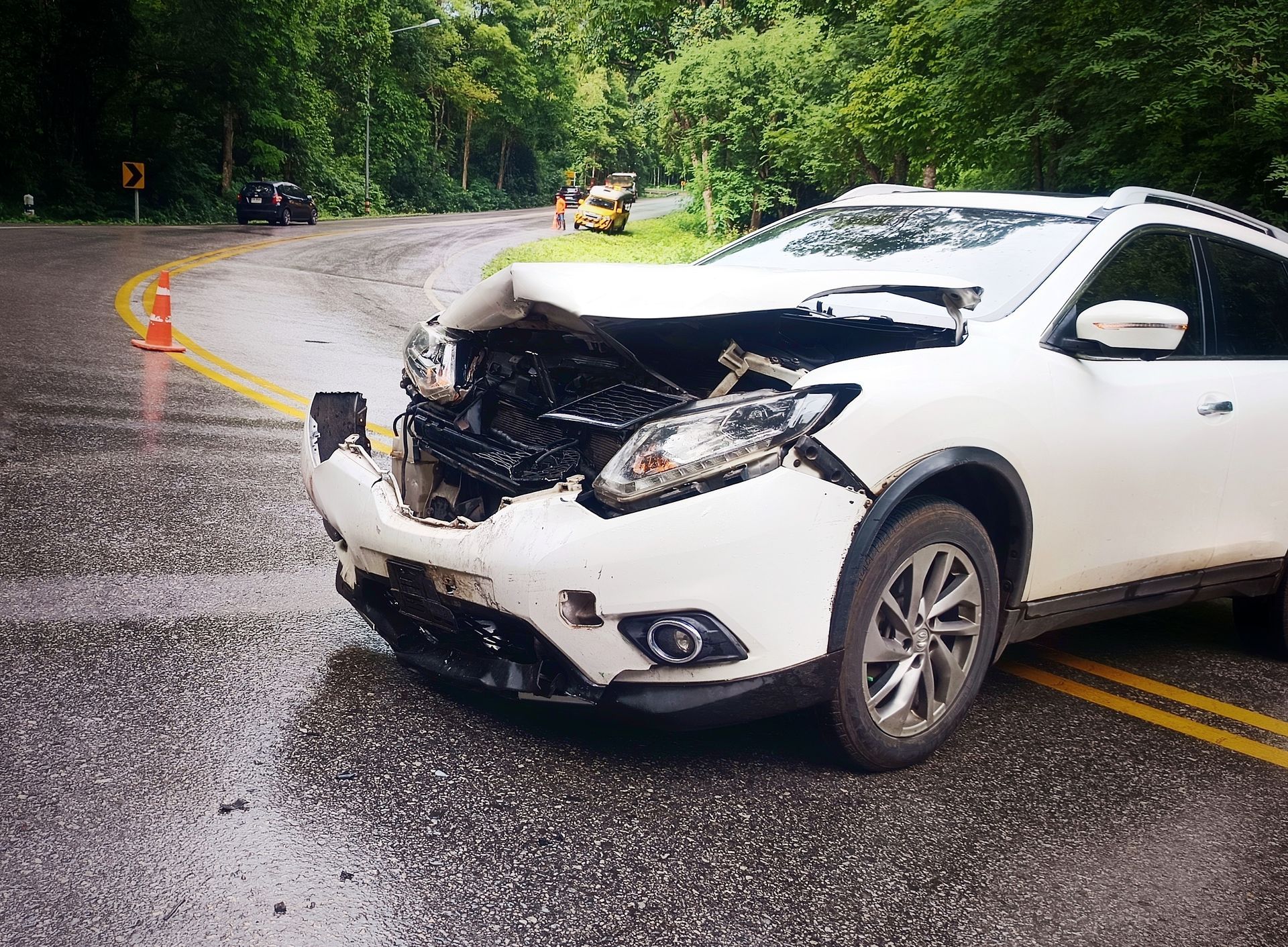Sargon Law Blog
Recent Blog Posts
Understanding the Difference Between Manslaughter and Murder
Has someone caused the unwarranted death of one of your loved ones? Recent Arizona crime statistics report that the state sees over 400 incidents of homicide each year, making such circumstances all too common.
In these situations, your thoughts and feelings rightly turn to a desire for justice. As a result, you may be wondering about the proper way to handle these matters in court.
One factor that affects the outcome of a legal trial is the difference between manslaughter and murder. How does that play into getting compensation for a wrongful death?
Learn important legal distinctions in these matters and how they affect your pursuit of a fair resolution.
What Is the Key Difference Between Manslaughter and Murder?
The general term for when one person is responsible for the death of another is "homicide." Arizona law then establishes a difference between manslaughter and murder depending on how and why the killing occurred.
Though the term "manslaughter" may sound more aggressive to some, murder is actually the more serious charge with harsher penalties. That's because murder includes an element of premeditation or intent that doesn't exist in manslaughter.
Therefore, manslaughter is accidental or unintentional, while a perpetrator commits murder on purpose. As such, when filing a wrongful death suit involving murder, a plaintiff may be able to fight for a larger amount of damages than one that pertains to manslaughter.
What Are the Degrees of Murder?
When it comes to the law, simply defining the difference between manslaughter and murder is not enough. Arizona also makes distinctions between the gravity of a murder charge.
First Degree
First-degree murder is the most heinous act of homicide. This is a premeditated crime, where the accused planned to kill an individual. Therefore, a first-degree murder is never a "crime of passion," an act of temporary insanity, or a mere accident. Additionally, anyone who intentionally kills a law enforcement officer in the line of duty will receive charges of first-degree murder.
Another circumstance that requires first-degree murder charges is when a victim dies while a felony is in progress. For example, if a victim of a robbery or kidnapping dies, the accused will face first-degree murder charges.
Consequently, first-degree murder receives the heaviest criminal penalties of all homicide cases. The offense is a class 1 felony that can result in either:
- A life sentence in state prison with the possibility of parole after 25 years
- Life in prison without parole
- The death penalty
Clearly, first-degree murder is no trivial matter.
Second Degree
Second-degree murder generally involves an intentional crime without the element of premeditation. For that reason, some people have a hard time grasping the difference between manslaughter and murder in the second degree.
In these situations, a person committed an action that could clearly lead to someone's death but did not plan ahead for that possibility. An example might be when two people suddenly get into a heated dispute. If one person happens to have a gun nearby and shoots the other individual in anger, that could be an instance of second-degree murder.
Second-degree murder also pertains to cases where someone knowingly persists in conduct that could lead to another person's death. Second-degree murders also include providing someone with the means to kill themselves, as well as injuring a pregnant mother and causing the death of the unborn child.
This is also a class 1 felony, and the penalties can include:
- At least 10 years in prison
- A sentence with no time off for good behavior
- Possible life imprisonment if the defendant has a record of other felonies
Be aware that these charges apply only to the death of humans, but that includes unborn children.
What Is Arizona's Standard for Manslaughter?

Again, manslaughter is a crime that involves taking a life without premeditation or intention. However, these offenses usually have an element of recklessness.
Another difference between manslaughter and murder is that there aren't different degrees of manslaughter in Arizona. Take note that, unlike other states, Arizona makes no distinction between voluntary and involuntary manslaughter.
As a class 2 felony, the penalties for manslaughter could be prison time from 7 to 21 years. Having prior convictions on one's record usually moves the court to impose a longer sentence.
How Adequate Provocation Can Differentiate Manslaughter From Second-Degree Murder
Because of the lack of premeditation, the difference between manslaughter and murder in the second degree gets murky. Arizona law attempts to address this with its statute on "adequate provocation."
Adequate provocation refers to a circumstance where the deceased's actions goaded the defendant into committing the homicide. For instance, in the case of an argument, the court would review what the deceased said or did that might have provoked the defendant into a rage and a loss of self-control. Examples could be that the individual backed the person into a corner or persisted in harassment.
If the defendant committed what would normally be a second-degree murder because of adequate provocation, the court could lower the charge to manslaughter. Often, the defendant's personal history plays a major factor in determining whether the act was a "crime of passion" or an intentional act.
What Is Negligent Homicide?
Arizona has a fourth classification of homicide, which the state terms as negligent homicide. It's important to understand this when discussing the differences between manslaughter and murder because there are instances where neither of those distinctions applies.
As the term implies, negligent homicide is when a person's carelessness leads to someone else's death. One of the most common situations where this occurs is in drunk driving cases. It could also involve the reckless use of a weapon, deadly chemicals, or machinery where a person does not intend to cause anyone else harm.
Due to the clear lack of malice and intent in negligent homicide, the penalties are much less. This is a class 4 felony, where the maximum sentence is 16 years of incarceration. However, the defendant might be able to avoid imprisonment and only receive probation, especially for a first offense that does not involve a deadly weapon.
How Do Wrongful Death Suits Compare to Manslaughter and Murder Cases?
The preceding information discussed pursuing justice in the criminal court system. These cases only deal with punishing a wrongdoer for a crime, which involves paying fines to the state and serving prison sentences.
Knowing that a killer must face penalties for the death of your loved one can provide some measure of satisfaction. Still, it does not cover the emotional cost nor the real expenses you'll face because of the death, including a funeral, burial, the lost income, and the support around the home.
To cover your family's losses, you must file a wrongful death claim in civil court. Therefore, you need to comprehend the differences between manslaughter and murder and how they affect a wrongful death claim.
A wrongful death suit is a civil case against a person or entity that was responsible for your loved one's death. In this claim, you will present evidence of an at-fault party's liability and the damages your family suffered.
Along with your wrongful death suit, you can file a survival action. This serves to recover any losses your loved one suffered between the time of the incident and that one's eventual death.
Plaintiffs, Defendants, and Time Limits
As with a criminal case for manslaughter or murder, a wrongful death suit requires a plaintiff and a defendant. In criminal trials, the state is the plaintiff, accusing the defendant of murder. However, you do not have to file a case against the same parties as the criminal case did. You might focus your attention on one party or file against people whom the criminal court did not try.
The plaintiff in wrongful death cases is either the closest surviving family member or the named representative of the deceased's estate. These are usually also the beneficiaries of the estate who will receive the recovered damages.
If there is any confusion about who should bring the case and how to divide the compensation, your family will have to allow a court to decide. You should be sure to clear this up quickly so you can bring your case within the deadline.
Regarding the statute of limitations, the difference between manslaughter, murder, and wrongful death cases is important. A criminal case could have a seven-year time limit, while a wrongful death claim only has two years. Therefore, don't feel you have to wait for the results of a criminal trial to start working on your wrongful death claim.
Legal Counsel

In the criminal court, the prosecution is the district attorney. Defendants can choose to represent themselves, hire legal counsel, or use state-funded legal aid.
In a civil case, you could represent yourself, but this will be taxing as you cope with the loss of your loved one and handle your other responsibilities. Many people wisely choose to hire a wrongful death attorney.
At Sargon Law Group, we handle wrongful death cases and lift the burden off of grieving families throughout Maricopa County, including locations like Gilbert, Glendale, and Mesa. We'll communicate and negotiate with defendants and insurance companies for you, and you don't have to worry about paying for anything out of pocket. We only get paid if we win your case.
The defendants might hire a lawyer, but many cases involve insurance companies that have their own experienced lawyers. For example, you would likely have to bring your case against a drunk driver's insurance company instead of the driver themself, which is a key difference between a manslaughter or murder criminal trial and a wrongful death civil case.
Likewise, if the wrongful death occurred due to a workplace accident or the actions of a business's employee, you may have to face a team of high-powered lawyers. No matter the situation, it doesn't hurt to talk to our team and find out how we can assist. Your initial consultation is always free, and we can help you determine your options.
Out-of-Court Settlements
Criminal and civil cases can both reach a resolution without a long trial process. A defendant may plead out or make a bargain with the DA in a criminal case for a less harsh sentence.
Most personal injury cases, including wrongful death, do not make it to trial because businesses and insurance companies want to settle quickly and keep the incident out of the public eye. You won't find much about settlements because these are confidential, while trials are public.
It is also less costly for you as a plaintiff to settle. However, you must be sure to get a fair deal, which almost always involves negotiating. Once again, as your legal counsel, our team at Sargon Law Group takes care of that for you.
Burden of Proof
Another critical difference between manslaughter and murder cases and wrongful death suits is the burden of proof. Criminal cases require proof of guilt beyond a reasonable doubt. This high standard is because of the weighty penalties.
In contrast, a wrongful death case has a lower standard for the burden of proof. You must only demonstrate some measure of negligence by the defendants. You and your legal team can do this by proving four elements:
- The defendant owed your loved one a duty of care or an expectation to not cause your loved one harm.
- That party breached that duty of care through an act of negligence.
- That negligence caused your loved one's death.
- That person's death resulted in losses to you and your family.
This means that the success of a criminal case does not guarantee that you'll win a civil suit. Likewise, just because a defendant beats the charges in criminal court doesn't mean that you'll lose your civil case. Proceed with your wrongful death suit and allow our attorneys to guide you.
Call Sargon Law Group for Help With a Claim Involving Manslaughter or Murder
Wrongful death claims can be some of the most painful and complex injury cases. If your family is dealing with such a situation, differentiating between an act of manslaughter or murder is vital to getting justice.
Our team of Phoenix injury attorneys at Sargon Law Group is ready to support you in your fight. We have the experience to help your family get what you deserve. Please contact us today for a free consultation.






